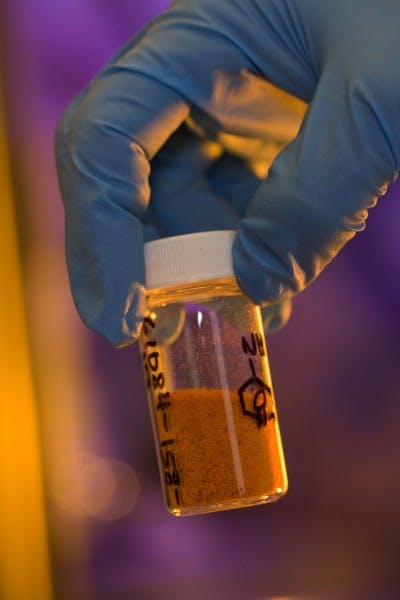When it comes to health care companies, there’s no bigger name than the largest firm in the business: Johnson & Johnson (NYSE:JNJ) .

What doesn’t J&J produce? From pharmaceuticals to consumer care goods to medical devices, this major medical player has it all. That can make it tough on investors trying to understand this highly diversified company, however: With so many parts, what do you need to keep an eye on? To get a grip on this colossus of the health care sector, let’s take a look at Johnson & Johnson (NYSE:JNJ) and the company’s pipeline of pharmaceuticals in development that will power the future.
Surging ahead to approval
Johnson & Johnson isn’t lacking in pipeline power. During a time when the patent cliff is hammering nearly every big pharma player in the business, J&J boasts more than a dozen drugs in phase 3 trials or filed for regulatory approval.
Type 2 diabetes therapy Invokana looks to make a dent in one of the most widespread diseases impacting advanced economies today. Johnson & Johnson (NYSE:JNJ) filed Invokana for regulatory approval in both the U.S. and EU last year, and with a PDUFA date at the end of March, we won’t have to wait long to see whether this drug will hit the market. Analysts have pegged Invokana’s peak sales at $1 billion or more, adding another potential blockbuster to J&J’s arsenal.
It’ll have to battle up-and-comers like Bristol Myers Squibb Co. (NYSE:BMY) and AstraZeneca plc (ADR) (NYSE:AZN)‘s similar diabetes treatment Forxiga, which gained European approval in November. However, the FDA turned down Forxiga’s filing due to safety worries, opening up more opportunity for Invokana to capitalize on.
The FDA and Europe approved rising star drug Zytiga’s new indication as a prostate cancer therapy for chemotherapy-naive patients in December. Zytiga’s already done well since being launched — the drug’s sales grew more than 300% year-over-year in 2012 to $961 million — but the new indication should help Zytiga easily zoom past blockbuster status. Chalk up another winner for J&J.
In the hot field of hepatitis C treatments, J&J has teamed up with Swedish biotech firm Medivir in the development of phase 3 treatment simeprevir for treatment-naive patients. While Medivir’s been hesitant to throw around peak sales projections, the hepatitis C market could reach $25 billion by 2010, according to analysts — an opportunity that J&J won’t pass up, even in a crowded market like this. Simeprevir has shown strong results as part of a combination therapy in trials, although it’s questionable whether this drug can become a blockbuster with so many other players in the hep-C market.
Finally, rheumatoid arthritis candidate sirukumab may be the brightest star in the pipeline. J&J has plenty of experience with other immunology drugs — its colossal blockbuster Remicade and more than $6 billion in sales last year speaks to that. The company and its partner on sirukumab, GlaxoSmithKline plc (ADR) (NYSE:GSK) , will have to face plenty of competition in the hot autoimmune business; although with some rival drugs losing patent exclusivity in the near future, J&J and GSK could find room for sirukumab to flourish.
Lighting up the future
Drugs like sirukumab and Invokana will one day replace J&J’s top-selling drugs such as Remicade and Zytiga as the company’s pharmaceutical anchors. Investors will have to keep a close eye on these drugs’ development to watch for missteps and unexpected failures, but for now, Johnson & Johnson’s well-stocked pipeline ensures this health care giant’s promising pharmaceutical future.
The article The Pipeline Power at Johnson & Johnson originally appeared on Fool.com and is written by Dan Carroll.
Fool contributor Dan Carroll has no position in any stocks mentioned. The Motley Fool recommends Johnson & Johnson. The Motley Fool owns shares of Johnson & Johnson.
Copyright © 1995 – 2013 The Motley Fool, LLC. All rights reserved. The Motley Fool has a disclosure policy.




